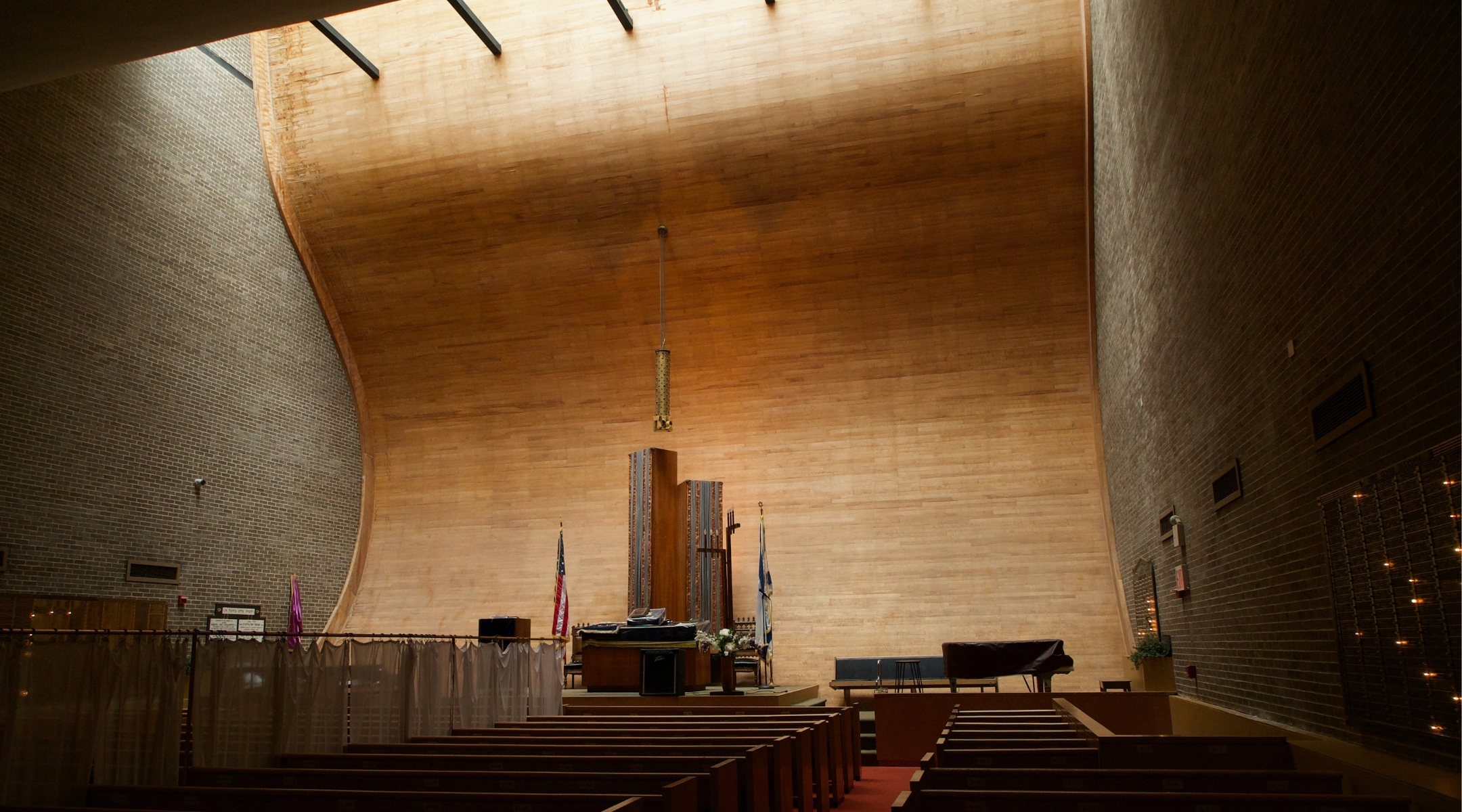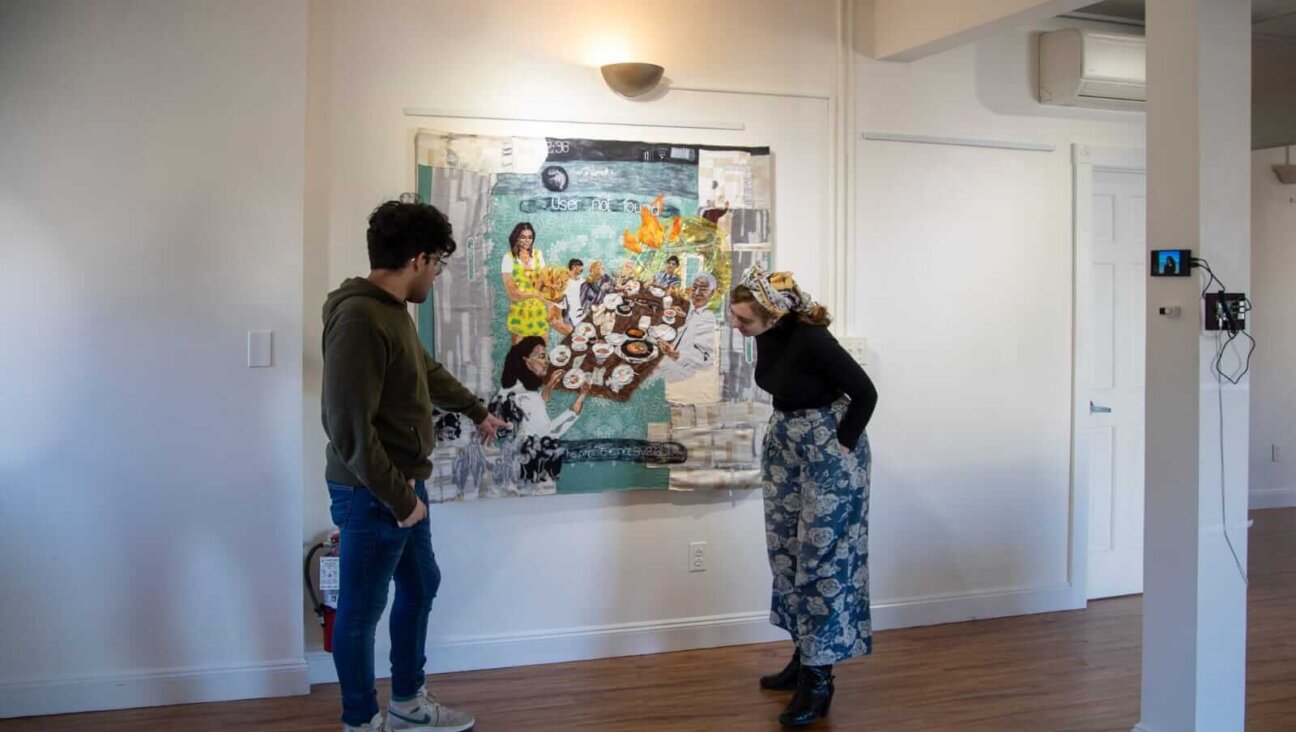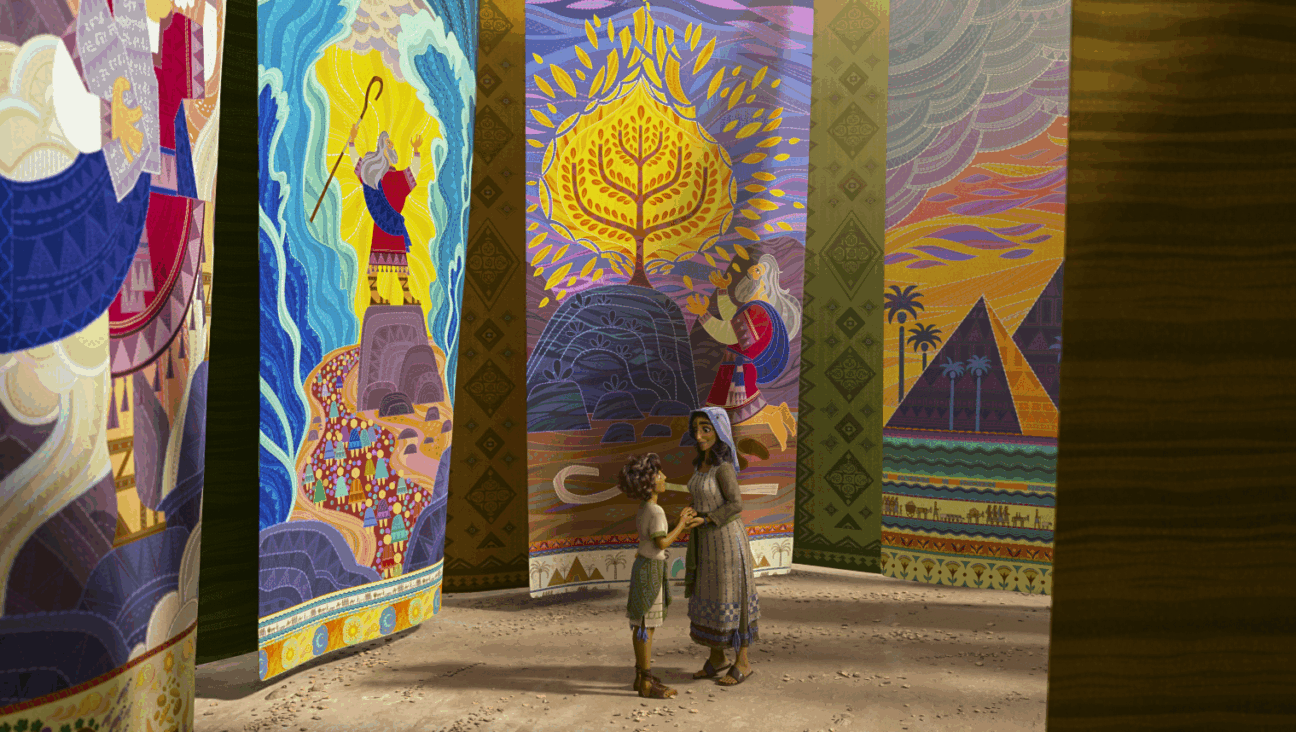How an encounter with Guillermo del Toro led to NYC’s first Mexican Jewish Film Festival
The Mexico City-born president of Tribeca Synagogue is organizing the event, which opens April 2

The Tribeca Synagogue, lauded for its architectural style and acoustics, will host New York City’s first Mexican Jewish Film Festival in April. (Courtesy of the Tribeca Synagogue)
(JTA) — When Deborah Koenigsberger Gutierrez attended a small cocktail reception with the celebrated Mexican filmmaker Guillermo del Toro last December, she didn’t expect to leave with an idea for a synagogue fundraiser.
But in a conversation with del Toro and a few other guests at the event, which was in honor of the premiere of his latest feature, “Pinocchio,” the famed filmmaker made a remark that stuck with her.
“He said something that really hit my heart,” recalled Koenigsberger Gutierrez, the president of Tribeca Synagogue. “He said, ‘Every Mexican outside of Mexico is an ambassador of the culture of Mexico.’”
Koenigsberger Gutierrez, who was born in Mexico City, had been on the lookout for creative ways to engage young families at her congregation, something beyond a traditional silent auction and gala dinner. She landed on a program that would draw an audience and pay tribute to del Toro’s craft, and began organizing the synagogue’s first-ever Mexican Jewish Film Festival, which will begin on Sunday, April 2.
“I basically said to myself, ‘How can I make a big event that brings in people and also celebrates Mexican Jews?’” Koenigsberger Gutierrez said. “And everybody loves going to the movies.”
The festival will feature 10 films with English subtitles over the course of three days, all of which were directed, made, written or acted in by Mexican Jews. The Jews highlighted in the festival come from a variety of Jewish backgrounds, including Ashkenazi, Sephardic and Syrian, and the films span a variety of genres, including horror, comedy and drama.
In addition to movie screenings, the festival will feature Q&As with two of the directors: Guita Schyfter, who directed “Like a Bride,” a coming-of-age story about two young women in 1960s Mexico City; and Isaac Ezban, who directed two horror movies, “Evil Eye” and “The Similars.” It will also feature a performance from the Nashir! chorus, pop-up artisan shops in the social hall, coffee from Mexico’s Chiapas region and cocktails and kosher Mexican food from the restaurant Carlos & Gabby’s.
The film screenings will conclude on April 4, and the festival will host a final day of events on April 5, the eve of Passover, including a “bread party” where attendees can munch on leavened products traditionally prohibited on the holiday. Vendors will sell Mexican folk art and kosher Mexican cookies.
The Tribeca Synagogue, which until a decade ago was called the Synagogue for the Arts, often rents out its sanctuary space, and hosted the 2022 NYC Bicycle Film Festival in November. It can place a giant screen at the front of the sanctuary, turning it into a makeshift theater. All it took to organize the Mexican Jewish Film Festival, Koenigsberger Gutierrez said, was selecting the films and getting the rights to screen them (and in one case, subtitling one of the films, the 2008 drama “3:19,” in English for the first time ever.)
Other films screening at the festival include the 1955 comedy “The Criminal Life of Archibaldo de la Cruz,” about a wannabe serial killer who keeps plotting murders but can’t quite execute any of them; “One for the Road,” a 2014 film about three octogenarian friends who take a trip together; and the 2007 comedy “My Mexican Shivah,” about a family dealing with their secrets being revealed as they mourn their patriarch.
Beyond her own synagogue community, which has fewer than 100 active memberships, Koenigsberger Gutierrez is expecting a diverse turnout for the festival. Jorge Islas Lopez, the Mexican consul general in New York, will give an address and is inviting Mexicans in New York to attend. The American Sephardi Federation and the Syrian Jewish group Kanisse have also partnered with the festival.
Koenigsberger Gutierrez hopes the films enable viewers to see beyond popular U.S. conceptions of Mexico on screen, which she says focus too much on violence fueled by drug cartels.
“We are not one genre,” Koenigsberger Gutierrez said. “We’re not only El Chapo and all these you know, drug dealers, and the things you see [in] Hollywood a lot. We are much more than that. The film festival is to celebrate Mexican Jews and their work.”
She added, “People tend to think that Jews look a certain way. And I can say that people think that, also, Mexicans look a certain way.”
When Koenigsberger Gutierrez came to the United States for her master’s degree eight years ago, she was surprised to see that people doubted her nationality.
“In Mexico, nobody ever questioned that I was Mexican,” she said. “There was no question. But when I got to America, people would be like, ‘You’re not really Mexican because you’re Jewish.’ And that was kind of like, really something I’ve never, never dealt with. I was like, ‘What do you mean? I’m 100% Mexican, I’m 100% Jewish.’ I’m Mexican and I’m Jewish.”
This article originally appeared on JTA.org.















